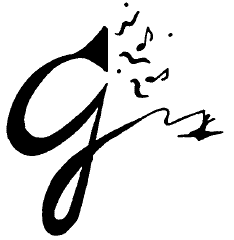Geneva Concerts Presents:
Friday, 14 January 2000, 8:15 PM
Chamber Orchestra Kremlin
Misha Rachlevsky, Music Director
"The Four Seasons"

The Program
VIVALDI: Le Quattro Stagioni (The Four Seasons)
Vitaly Matveev, Continuo
Concerto for Violin in E major, Opus 8 No. 1:
Primavera (Spring)
Tatiana Porchneva, Violin
Concerto for Violin in G minor, Opus 8 No. 2:
L'estate (Summer)
Tatiana Vinogradova, Violin
Concerto for Violin in F major, Opus 8 No. 3:
L'autunno (Autumn)
Olga Sidarovich, Violin
Concerto for Violin in F minor, Opus 8 No. 4:
L'inverno (Winter)
Eskender Bekmambetov, Violin
Intermission
PIAZZOLLA:
Las Cuarto Estaciones Porteñas (The Four Seasons Of Buenos Aires)
Transcription by Jose Bragato
Vitaly Matveev, Piano
Verano Porteño (Summer)
Anton Shelepov, Violin
Alla Pitirimova, Cello
Invierno Porteño (Winter)
Alexandre Barklianski, Violin
Elizaveta Nalivaiko, Cello
Otono Porteño (Autumn)
Maxim Avramenko, Violin
Maxim Kozlov, Cello
Primavera Porteña (Spring)
Vladislav Bezroukov, Violin
Maxim Kozlov, Cello
Program Notes

Misha Rachlevsky
Music Director
Antonio Vivaldi
Born: 1678. Died: 1741.
Le Quattro Stagioni (The Four Seasons)
What a wonderful fate The Four Seasons of Antonio Vivaldi has enjoyed! Survey after
survey puts it on the top line as the most popular piece of classical music of all time. It is
by far the most recorded classical work. Its interpreters have ranged from great violinists to
aspiring amateurs, from practitioners of authentic performance to those favoring a modern
approach. It has been transcribed for various instruments, utilized in movies, jazz and rock
concerts, countless commercials, on-hold selections (you name it, and it's been there! And
just when one thinks all possible variations have been heard, along comes another
reincarnation, usually offering yet another glimpse into the bottomless well of possibilities
this composition offers. This multitude of renditions gives a totally new meaning to the
famous one-liner of Igor Stravinsky, whose sharp-tongued remarks stung many composers
and performers alike: "Vivaldi did not write 400 concertos, he wrote one concerto 400
times." Indeed!
Astor Piazzolla
Born: 1921. Died: 1992.
Las Cuarto Estaciones Porteñas
(The Four Seasons Of Buenos Aires)
By naming his set of four one-movement compositions "The Four Seasons of Buenos Aires,"
Astor Piazzolla paid tribute to the author of its most famous namesake composition and, at
the same time, underlined the meteorological and cultural differences between
Mediterranean Europe and the heart of South America. In his "Four Seasons," there are no
winter chills or violent summer storms, no singing birds or barking dogs. The "weather," or
rather, the ambience, is always the same (thick air, highly charged with sensuality. Within
this frame, though, there are countless variances of emotion, from utmost tenderness, to
nearly violent passion.



 This series is made possible, in part, by a grant from the Williams Family Foundation, by a continuing subscription from
This series is made possible, in part, by a grant from the Williams Family Foundation, by a continuing subscription from 
